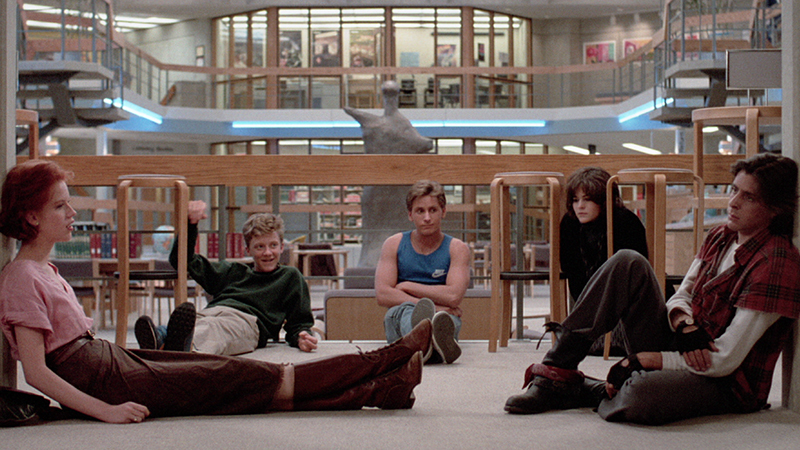“How are we meant to feel about art that we both love and oppose?”
This is the question put forward by actress and author Molly Ringwald in her recently published essay, and, at a time when films of the past are constantly being brought to new audiences through the popularity of streaming sites such as Netflix, this question has never been more pressing. Ringwald, who rose to fame starring in the films of the late John Hughes in the mid-1980s, has described finding certain scenes ‘troubling’ whilst re-watching the cult classic The Breakfast Club with her daughter.

“At one point in the film, the bad-boy character, John Bender, ducks under the table where my character, Claire, is sitting, to hide from a teacher. While there, he takes the opportunity to peek under Claire’s skirt and, though the audience doesn’t see, it is implied that he touches her inappropriately.” Re-watching the film recently, I tried to convince myself that there was some kind of nuance to Hughes’s on-screen portrayal of sexual harassment. Being a firm favourite of my teenage years, it felt like some kind of betrayal to the film and to my younger self to accept the truth: that where Hughes’s writing so often excels in its beautiful exploration of the subtleties of adolescent angst, here it falls short. Bender’s character shows no remorse for how he treats Claire. He sexualises, harasses and humiliates her throughout, yet we still see him “get the girl” in the end. It’s as simple as that.
Being a firm favourite of my teenage years, it felt like some kind of betrayal to the film and to my younger self to accept the truth: that where Hughes’s writing so often excels in its beautiful exploration of the subtleties of adolescent angst, here it falls short.
It can be difficult to acknowledge the failings of films from our past. If we admit that parts are too problematic to be overlooked, we risk tarnishing something we have loved to the point where we can no longer enjoy it. This reluctance seems no stronger felt than by Ringwald herself, to whom Hughes was not just a writer and director, but a mentor and friend. At a time when art was seldom created for and about young people, and their on-screen portrayal was one-dimensional at best, Hughes led audiences to see their experiences as important. His films still resonate with young people from different backgrounds today, and Ringwald hopes that his films continue to be watched, believing they teach teens “that what they feel and say is important; that if they talk, adults and peers will listen”. However, these same films undeniably normalised the sexualisation of teenage girls by their peers, something that, on reflection, Ringwald has rightly found impossible to ignore.
“It’s hard for me to understand how John was able to write with so much sensitivity, and also have such a glaring blind spot” she laments, “…but I’m not thinking about the man right now but of the films that he left behind”. What Ringwald has written is a brave and thoughtful piece of cultural criticism. When old films reappear in the sphere of pop culture, how can we critically examine their shortcomings whilst avoiding blacklisting them all together?
Connie Lawfull
(Image courtesy of Criterion)

